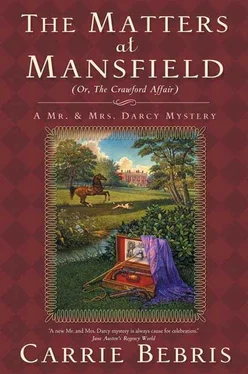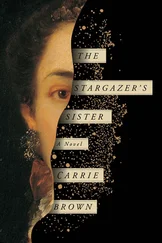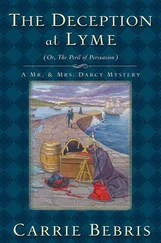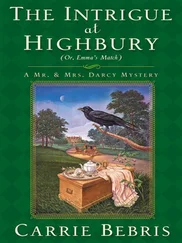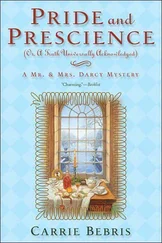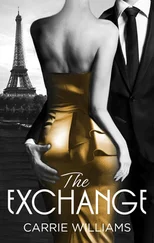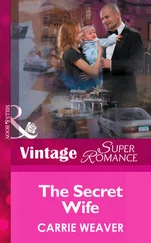“And you rebelled at her plan?”
“Quite the contrary. I am conscious of my duty, Darcy, and I had no reason to hope for better situation than what my mother sought for me. I never expected to marry for affection, and at this point in my life, I realized that was an unlikely luxury.”
“Then how came you to elope with Mr. Crawford?”
“I would have borne a mariage de convenance if it were to a gentleman I could respect, or even a fool who would treat me kindly. But my mother appeared to have settled upon Neville Sennex, and that is a match to which I could not submit.”
“Why not?”
“I am troubled by his character. Indeed, after my observations this se’nnight past, I believe him not just an unpleasant man, but one of violent temper.
“We called at Hawthorn Manor each day after our arrival at Riveton, and both my mother and his father seemed determined to put us in each other’s company. I endured the awkward conversations and tried to make myself agreeable, but Mr. Sennex clearly resented the interviews. As a host, he was not solicitous of my comfort or interests; it was only at his father’s behest that he partook in even the most cursory exchange. His treatment of Lord Sennex fell far short of the respect any father, let alone a viscount, deserves. He displayed such impatience with his lordship’s befuddlement in our presence that I cannot imagine his conduct when they are alone.
“Our third visit saw slight improvement in his manners toward me, but I am afraid the servants suffered as a consequence. He exploded at a housemaid for a trivial oversight, threatening to dismiss her if it happened again. I noticed, as he did so, that she rubbed a faded bruise on her forearm. Twice more that afternoon he berated servants mercilessly for minor infractions.
“The day before the ball, the viscount and my mother — who seemed to desire a private tête-à-tête — insisted that Mr. Sennex lead me on a tour of the house and grounds. He obviously despised the task. We walked through perhaps half a dozen rooms, he barely uttering a word except to enquire how Rosings compared. He could not seem to resolve in his own mind whether he wanted Rosings to be of inferior significance or extraordinary worth. He was quizzing me about the rents — as if I have any knowledge of such business — when he abruptly cut me off.
“We had entered a chamber that contained so many weapons it could have been an armory: rifles, muskets, a set of dueling pistols, a fusil from his father’s military days. There were swords that had been passed down through the family for generations, and I do not know what else — the room could not have held less interest for me, and I wondered that of all the places in the house, he should have brought me there. But he was more animated than I had ever seen him, rattling on and on about the power of the various weapons, as if the information ought to impress me.
“Finally, to my immense relief, a servant entered to announce the arrival of a gentleman whom Mr. Sennex had been expecting. I was quite surprised when, a moment later, Mr. Crawford entered. My presence took him equally by surprise. He’d had no idea of my being in the neighborhood; he himself had arrived only that morning, and called at Hawthorn to collect a horse he was acquiring from Mr. Sennex. The two gentlemen had met at one of their London clubs, and had arranged the matter during a recent visit there.
“Mr. Sennex would have deposited me back with my mother and the viscount, but Mr. Crawford invited me to view the horse along with him. As we walked toward the stables, Mr. Crawford displayed all the congeniality I remembered. Upon close inspection of the horse, however, his demeanor changed. The animal, which Mr. Sennex had represented as a fine hunter, was head shy and scarred from an injury near its left eye that had damaged its vision. The mount was not worth nearly as much as Mr. Sennex had claimed, and from the terse argument that ensued I inferred that the horse had originally been offered to Mr. Crawford as payment for a gambling loss. Mr. Crawford said he would take the horse, but did not consider the debt fully discharged. Mr. Sennex stormed off to the house to retrieve banknotes to make up the difference, leaving us with the horse.
“As we awaited his return, Mr. Crawford asked what had brought me to Hawthorn Manor. I explained that I visited with my mother. Though I did not intend to share my suspicion that she and the viscount plotted a betrothal, he knew me well enough to perceive my discomfort, and I found myself revealing my apprehensions. Mr. Crawford became grave. He said he did not know Mr. Sennex well, but that he had a reputation at the club for a quick temper. He also said that given the behavior of Mr. Sennex’s horse and the look of the injury, he suspected the mare’s scar to be the result of having been struck with the horn hook of a hunting crop, rather than the accident Mr. Sennex had claimed. ‘A man who could injure so valuable an animal…’ He left the sentence unfinished, but I understood him. Striking a wife — also a man’s legal property — is not so very great a leap.
“Mr. Crawford urged me to avoid an engagement with Mr. Sennex. I told him that my mother seemed determined, but that I would speak with her. He extracted a promise from me to meet him in Riveton’s rose garden at dawn to tell him the result.”
“Later, when I attempted to convey to my mother my uneasiness about Mr. Sennex, she would not hear. An obedient wife had nothing to fear, she said, and implied that a betrothal agreement was indeed imminent. My cooperation was not only expected, it was demanded.
“I spent the night recalling the bursts of anger I had witnessed in Mr. Sennex and imagining the force that had caused the horse’s scar applied to me. Early the next morning, en route to my assignation with Mr. Crawford, I encountered Mrs. Darcy and thought for certain that she suspected the rendezvous. By the time I reached the rose garden and Mr. Crawford, agitation so overcame me that it is only by some miracle that he made any sense at all of my utterances.
“Mr. Crawford revealed his partiality for me and declared that he could not stand by whilst I sacrificed myself to Mr. Sennex. He offered himself as a husband and asked whether my mother would consider him an acceptable substitute. When I doubted her accord — he possesses no title, and negotiations with the viscount were so far along — he proposed a desperate solution: an elopement. I could not conceive of such disobedience, but he urged me to consider it for my own welfare. I was to give him my answer at the ball. We would underplay our acquaintance to avoid suspicion, but he would contrive a few minutes’ conversation in which I could indicate my decision by some sign. He would come prepared; if I accepted, we would depart from there, with the distraction of the festivities to mask our disappearance.
“I tried to speak to my mother a final time before the ball, but she cut me off in her haste to meet yet again with Lord Sennex. As I watched her carriage depart for Hawthorn Manor, I knew that I had to act that night, for I would not have the courage to disobey her in person when she put a finalized betrothal agreement in front of me to sign. Now it is done, and I can only imagine the extent of her displeasure. Will she ever receive us at Rosings, do you think?”
“She wants to see you posthaste. Colonel Fitzwilliam and I are to return you and Mr. Crawford to Riveton as quickly as the miles can be traveled.”
Anne sighed and glanced round the shabby room that had been her bridechamber. Her entire posture bespoke resignation. “We can depart whenever you wish. Delaying the reunion will not make it easier.”
Читать дальше
